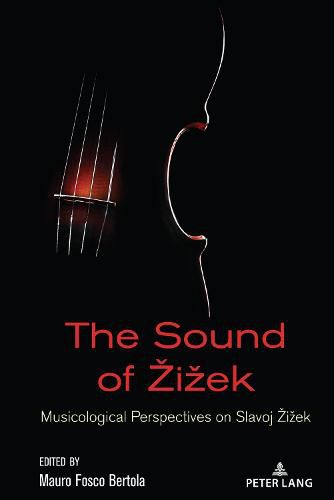Readings Newsletter
Become a Readings Member to make your shopping experience even easier.
Sign in or sign up for free!
You’re not far away from qualifying for FREE standard shipping within Australia
You’ve qualified for FREE standard shipping within Australia
The cart is loading…






This title is printed to order. This book may have been self-published. If so, we cannot guarantee the quality of the content. In the main most books will have gone through the editing process however some may not. We therefore suggest that you be aware of this before ordering this book. If in doubt check either the author or publisher’s details as we are unable to accept any returns unless they are faulty. Please contact us if you have any questions.
Over the last three decades Slavoj Zizek has become an iconic figure of intellectuel engage and his works have engendered ongoing reflection within as different academic disciplines as philosophy, literature or cultural, gender, postcolonial and film studies. But when it comes to music, things look different.
With an emphasis on the German modernist tradition from Wagner to Schoenberg, a whole range of references to music are scattered throughout Zizek's copious body of works. However, these efforts seem to go almost unnoticed within academia - at least on first glance. Looking more closely, one notices a subtle but nevertheless consistent adoption of Zizek's theories within musicology, spreading across a broad range of topics and approaches. So, Zizek has become part of musicology, even if his presence is still uncharted territory.
The present volume, which appeals to musicologists and philosophers alike, intends to map different ways in which Zizek's philosophy has been adopted in order to approach many of musicology's core questions, from musical analysis to the opera studies, from contemporary music to the history of the discipline itself. At the same time it both reflects on and questions Zizek's positions on musical aesthetics as expressed in his writings. Last but not least, the volume also features two essays by Zizek himself, reflecting his different approaches to writing about music.
$9.00 standard shipping within Australia
FREE standard shipping within Australia for orders over $100.00
Express & International shipping calculated at checkout
This title is printed to order. This book may have been self-published. If so, we cannot guarantee the quality of the content. In the main most books will have gone through the editing process however some may not. We therefore suggest that you be aware of this before ordering this book. If in doubt check either the author or publisher’s details as we are unable to accept any returns unless they are faulty. Please contact us if you have any questions.
Over the last three decades Slavoj Zizek has become an iconic figure of intellectuel engage and his works have engendered ongoing reflection within as different academic disciplines as philosophy, literature or cultural, gender, postcolonial and film studies. But when it comes to music, things look different.
With an emphasis on the German modernist tradition from Wagner to Schoenberg, a whole range of references to music are scattered throughout Zizek's copious body of works. However, these efforts seem to go almost unnoticed within academia - at least on first glance. Looking more closely, one notices a subtle but nevertheless consistent adoption of Zizek's theories within musicology, spreading across a broad range of topics and approaches. So, Zizek has become part of musicology, even if his presence is still uncharted territory.
The present volume, which appeals to musicologists and philosophers alike, intends to map different ways in which Zizek's philosophy has been adopted in order to approach many of musicology's core questions, from musical analysis to the opera studies, from contemporary music to the history of the discipline itself. At the same time it both reflects on and questions Zizek's positions on musical aesthetics as expressed in his writings. Last but not least, the volume also features two essays by Zizek himself, reflecting his different approaches to writing about music.